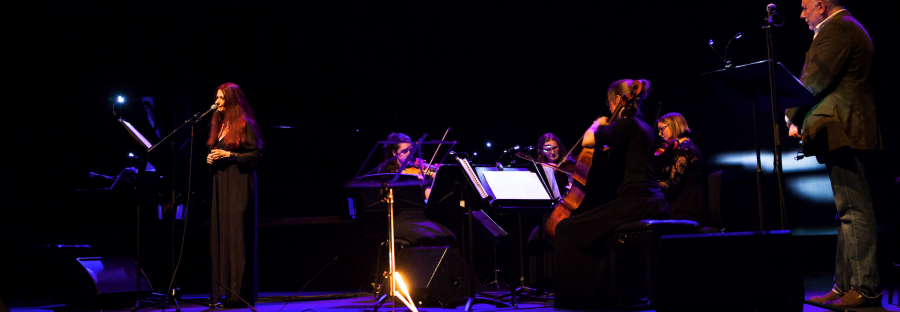Butterfly in Blood at RNCM opera tells story of Holocaust
Journey through torment and agony of Jews movingly portrayed on stage
Butterfly in Blood takes the audience on a journey through the torment and agony that the Jews suffered at the Nazi concentration camps. During this improvised opera, the story of one woman’s fight is highlighted through music.
During the Holocaust, over a million men, women and children lost their lives in Auschwitz. Fania Fenelon, a soprano and pianist was lucky enough to survive. After witnessing the horrifying and torturous events that occurred in the camps, and suffering immense pain, Fania uses her grief as a sympathiser for her music, which allowed her to become the beautifully poignant singer that she was.

Marika Klambatsea is the soprano of the piece, she becomes immersed in the character of Fania, portraying her pain and intense emotion through a variety of pieces in the concert. Alongside her is Christos Simardanis, an actor who uses the strength of spoken word to tell the story.
The opera uses a variety of language, both spoken and through song, to reflect the languages and cultures of people killed by the Nazis. This creates an element of the unknown, which is effective for an audience member as they can empathise with the uncertainty the Jews felt during the treacherous time. The audience don’t always understand what is being said, and that reflects the lack of understanding most of the world had towards Hitler’s actions.
Klambatsea opened with a sense of subtlety to her voice, as she enhanced the vocal power, her tone mirrored her emotions ranging from pain to insanity. “I am still a little child but I get treated like an adult” she sings, representing the moment she is sent to the concentration camp. A scared young girl, she captures the fear in her tone, using vibrato to portray her discomposure.
Using characterisation in her voice, Klambatsea cogently illustrates the dark times Fania endured. A particularly potent piece is when Fania is scared she will lose her hands. “I must keep my hands to play piano,” Christos Simardanis says, instantly prompting Klambatsea to improvise a piece of music on the piano, her hands wavering over the keys, every note a violent strike on the piano.
The orchestra of two violins, a viola and a cello, sublimely complement the piece and echo the emotion. Their ability to create light and shade through music has a dynamic effect on the production. For instance, a moment where the orchestra passionately create a sharp cacophony of music that is interjected with silence creates a sense of panic, allowing the audience to feel overwhelmed, a parallel to the emotions felt by the Jews.
Butterfly in Blood is disconcerting yet will evoke emotion as it influences the audience to empathise with Fania. The ending is uplifting, as she is released from camp, “my voice is not dead, I will sing, I will live” she sings. With a finale of memorable opera songs, a feeling of hope has manifested in her vocals, creating a jubilant ending.


